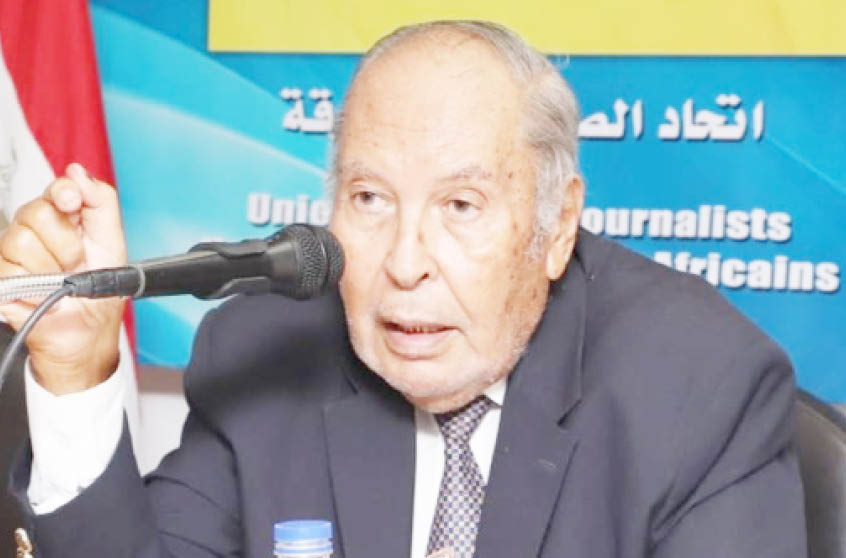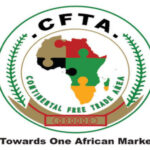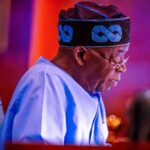Ambassador Ahmed Haggag is the former Assistant Secretary-General of the Organisation of African Unity (OAU) and also the special advisor to the Union of African Journalists. In this interview with Daily Trust Saturday, on the sidelines of the ongoing 57th training for young African Journalists in Cairo, he speaks on why the African continent should consider member countries first before other western countries when it comes to trade, among other sundry issues.
Why do you think African countries still depend heavily on their colonial masters?
One of the major challenges we face on the continent is our inability to harness our natural resources to develop our individual countries. Rather, the developing countries have explored our countries to help us tap these resources at our expense.
Also, African countries borrow heavily from developed countries and other international institutions with foreign dominance like the International Monetary Fund and the World Bank. Since we are indebted to them, we can hardly do without them.
ExxonMobil, NBA Africa, PanAfricare Power Forward finals ends today
Why intra-African trade should be priority – Amb. Haggag
Therefore, I will say there is a direct link between debts and exploitation.
The African Continental Free Trade Area Agreement (AfCFTA) was birthed to boost intra African trade. What do you think about the agreement?
The AfCFTA is a very good initiative. It is said to be the world’s largest free trade area in terms of number of member countries, territory and population. It has the capacity to also connect 1.3 billion people across 55 countries with an estimated Gross Domestic Product (GDP) valued at $3.4trn.
However, for that agreement to succeed, there must be consensus that goods among African countries have to be prioritised.
For instance, one of the major challenges facing all experiments used since the Lagos Plan of Action or the free trade area community is that intra African trade was barely 10 per cent while the rest of the trade is with other countries and the outside world, which was wrong.
We are still trading with colonial powers or other big powers. I am not saying we should cancel trading with colonial masters but it should be balanced among African countries and there should be a role and responsibility of African countries to sell themselves.
In Egypt where I come from, we produce cottons and refrigerators, Kenya produces tea and coffee and Nigeria has oil and other solid minerals. If we can harness such resources, we can trade among ourselves profitably and comfortably without looking at the West.
Our major problem is that we are good in selling ourselves to the alternate world but not to our brothers. We have chambers of commerce in almost all countries, as such these chambers can come together and look at products which can be traded among member countries. Egypt and Nigeria can trade a lot; however, I don’t want to confine it to only Egypt and Nigeria but all African countries.
How can Africa successfully implement the AfCFTA?
First, we need to have a transport system that works in Africa, adopted by the African Union. This is because moving from one part of Africa to another is a lot of difficult process. We should encourage railway. I remember Egypt is sponsoring to have a railway system from Cairo to Abuja or even Cape Town and that’s what African countries should do. Also, government should not monopolise these initiatives of the AfCFTA because it will not work, rather the private sector should be fully involved.
More mass transit buses should also be introduced. For example, in cities like Cairo here, in Lagos and Abuja, and also in Guinea, there is Matato – which is a small mini bus that transports people 24hrs with cheap prices.
We have some landlocked countries in Africa and it’s important to explore it and make out transport system more accessible and affordable for the AfCFTA to work.
How do countries sort out the issue of rules of origin in the agreement?
Rules of origin is not only introduced in Africa but all over the world. It is important to be sorted out because it is the main essence of free trade. It entails producing local commodities to be transported to other countries free of Customs duty. Some western countries can pretend to produce local products and sneak them into African countries with free Customs duty which needs to be checked.
However, another way to do it is to have regulators that will scrutinise and confirm that any local manufacturer indeed has a company or manufacturing plant for the goods they are claiming ownership.
How do we address the issue of unified currency in AfCFTA?
100 years ago, Africa used to trade with each other without dollars or euro; they had a barter system of trading goods and services. But now, we are living in an era of a very complicated international system.
Unfortunately, the Bretton woods institutions, the International Monetary Fund and the World Bank and even the African Development Bank are nominating transactions in hard currency.
So, for the smooth take off of the process, we should try to device some sort of exchange of goods in local currency, and then we adjust the balance of local currency.
We have to think about BRICS also and then try to establish another currency instead of dollars or euro although it is a complicated issue that has been postponed. However, trading with China or Euro Yuan, Russian Rubble or Egyptian pound or Nigerian Naira can be harmonised for trade also.
Don’t you think colonial masters won’t interfere with the AfCFTA?
I think big economies in Africa like Egypt, Nigeria, South Africa have already started trading hugely among themselves. However, if there is need to trade with the outside world, we should look first if the item is available in other African countries, but it is not a licence to feel entitled that because you’re an African country, your fellow country must trade with you because you must produce quality products with competitive price and be opened to business and not feel entitled.
Why do you encourage more African countries to join BRICS?
BRICS from the name stands for countries of Brazil, Russia, India, China and South Africa. It is a coalition of developed and developing countries who have former alliance to boost ambitions and development of member states.
I am also encouraged by the news that Mexico has decided to join the former non-alliance as a developing nation, including China that is developed. As such, we have to revive the old bond between developing countries and non alliance movement as an alternative for our development.
What’s the role of African Union in the AfCFTA?
The African Union is important and it plays a huge role. It is the only organization we managed to have all African countries in. Although sometimes the AU gives priority to political issues like coup d’etat and others, there is need to give importance to economic issues because if you solve economic issues, you will as well solve political issues.
What is your message to African countries on how to be innovative to revive their economy?
We in Africa don’t have enough information about other African countries and the huge trading prospects among us. We have to encourage free passage of personnel and trade. We initiated the idea of the African passport which, to some extent, was opposed by many because some countries are scared of terrorism, but we have to open our minds to other cultures. We should not be close minded. We can deal with other parts of the world but also it is important to discover ourselves in terms of trade, culture, music and others.
But overall, I am hopeful Africa has a good future. Nigeria, Egypt and south Africa have some of the best scientists but they are working in Europe and America which needs to change. We need to think first of our development before others.
What is your message to participants of 57th training for African journalists?
You are the representatives of African media. I always encourage young journalists like you not to speak on individual countries but on pan African issues. Young journalists as you will be taught should indulge more in investigative journalism and should dwell on talking about our oneness as Africa not our differences. Yes, you have licence to speak and criticise, but it is also imperative to stress on our unity not differences.

 Join Daily Trust WhatsApp Community For Quick Access To News and Happenings Around You.
Join Daily Trust WhatsApp Community For Quick Access To News and Happenings Around You.


